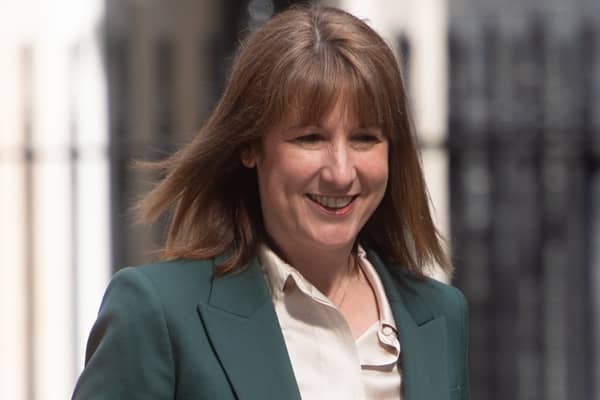#estate planning
#estate planning
[ follow ]
#estate-planning #inheritance #trusts #wills #probate #real-estate #inheritance-tax #family-dynamics
US news
fromBusiness Insider
2 weeks agoA document lists 43 people who would inherit Jeffrey Epstein's $630 million fortune. It says he planned to marry one.
Jeffrey Epstein planned to marry and leave a $630 million estate, including $100 million and multiple properties, to his fiancée and close associates.
Law
fromBusiness Matters
1 month agoWhen a Workplace Fall Pushes Business Owners to Take Their Future Planning More Seriously
Workplace accidents reveal operational vulnerabilities and prompt owners to strengthen safety, contingency planning, estate planning, and succession to ensure continuity and protect stakeholders.
from24/7 Wall St.
2 months agoMore than half of U.S. 401(k) accounts risk court battles without estate planning
Losing a parent can be a tough blow. The grief alone can feel overwhelming, and the last thing anyone wants during that time is additional stress or conflict. But one thing that can make the process even harder is having to fight to gain access to the assets you know your parent intended for you to inherit. When the emotional burden is already heavy, dealing with red tape, unresponsive institutions, or unclear documentation can push anyone to their limit.
Law
SF LGBT
fromSan Francisco Bay Times
3 months agoAppointing Fiduciaries: Who Can Act on Your Behalf If Immigration Issues Arise for Members of the LGBTQ+ Community? - San Francisco Bay Times
Appoint fiduciaries and an immediately active durable Power of Attorney to ensure financial access, protect privacy, and safeguard property for queer immigrants during immigration-related absences.
Real estate
fromRedfin | Real Estate Tips for Home Buying, Selling & More
3 months agoBuying a House in Retirement: Pros, Cons, and How to Choose the Right Home
Plan retirement home purchases around a sustainable budget, lifestyle needs, accessibility, taxes, maintenance, and estate planning; verify mortgage options and long-term fit before buying.
Real estate
fromSlate Magazine
3 months agoThere's a Popular Belief About What You Need to Do With Your Money at My Age. I've Crunched the Numbers-and I Disagree.
Protect living-income needs by holding a multi-year cash/bond reserve and reduce equity concentration to avoid forced sales during market downturns.
fromwww.npr.org
3 months agoHere are 6 'Beautiful Bill' tax changes that will benefit wealthy Americans
The changes approved by lawmakers in July lock in a friendlier tax climate for affluent Americans with lower rates and generous exemptions. While middle-income households may see some modest relief, the lion's share of the benefits will flow to those with substantial earnings, investment income, or large estates. "By definition," says Joseph Rosenberg, a senior fellow at the nonpartisan Urban-Brookings Tax Policy Center, "these are very wealthy people who benefit."
US politics
Business
fromBusiness Insider
3 months agoYou can protect you and your family's wealth from an ugly divorce without a prenup - here's how
Estate planning for blended families requires proactive, sensitive, and tailored strategies to balance remarriage, inheritance, and protect children's inheritances through trusts and clear communication.
fromSlate Magazine
3 months agoI Think My Parents Made an Expensive Mistake When They Bought Their House. I Want to Help Them Fix It.
My parents moved to a new house in a new state 30 years ago. For some reason, they put the house in my mom's name only. I think it might have been to lower state estate taxes, but their state doesn't currently have any estate taxes (and their estate is definitely lower than the $13.99 million federal limit for 2025). In the past 30 years, the house has appreciated considerably.
Real estate
Law
fromSlate Magazine
3 months agoI Control My Late Parents' Trust. My Family Is Threatening to Never Speak to Me Again Depending on What I Do With It.
Trust assets should be preserved for the named beneficiaries; the trustee should resist claims from the brother or his girlfriend and prioritize niece and nephew.
Law
fromLondon Business News | Londonlovesbusiness.com
3 months agoWhen medical malpractice disputes affect estate planning decisions - London Business News | Londonlovesbusiness.com
Medical malpractice claims can disrupt estate planning, stressing finances, relationships, and long-term family stability and requiring proactive, evolving legal and financial strategies.
fromwww.housingwire.com
4 months agoHow Paris Hilton demonstrated an age-old accounting principle and why this matters for clients
Not to be a Nosy Nelly, but in this investment environment, I have my MBA accounting and finance students watching investments that have motion. The age-old expression that accounting and finance students can quote in their sleep is that cash is king. And from the looks of things, Paris Hilton is proving that saying to be right. It's not uncommon for homeowners, whether high-net-worth or not, to refinance their homes for liquidity or investment flexibility.
Real estate
fromFilmmaker Magazine
4 months ago"I Kind of Think Like a Rock Band": Hal Hartley on Self-Distribution, Personal Filmmaking and His New Feature, "Where to Land"
Joe Fulton (Bill Sage), a filmmaker referred to as "the quiet and unassuming elder statesman of American romantic comedies," decides to prepare his last will and testament while also jockeying for a job as a cemetery groundskeeper. The timing of his estate planning combined with the drastic professional pivot concerns some of the people in Joe's life, most of whom assume that he's near death.
Film
fromwww.mercurynews.com
5 months agoJill On Money: Your questions, answered
Q: I have been investing for decades, and I now want to transition into a safe, non-volatile, income producing account without penalties or capital gains. What are my options? A: Who wouldn't want a consistent return without risk or capital gains taxes? Sadly, this doesn't exist. If you seek safety, consider a money market fund, a CD, or treasury bills. Once the Fed starts to cut interest rates, which could be any day, rates on these investments will start to drop.
Real estate
fromSlate Magazine
6 months agoMy Husband Wants to Leave His Business to My Entitled Stepsons. I Have to Change His Mind.
My first marriage left me a wealthy widow where we had several vacation homes but sadly no children. My second husband has two adult sons and a thriving business that is basically his third child. Despite us both being retired, he is still very involved in the business. Neither of his sons ever showed interest in taking over, so my husband has been approaching his lifelong employee, "Mike," to take over.
Relationships
fromTechCrunch
6 months agoChime backer Lauren Kolodny bets on AI to revolutionize estate processing | TechCrunch
"I was shocked that this process was so hard. It's paper-driven. It's archaic. You're googling to-do lists that are not helpful. You're calling attorneys who might do a sliver of the work, and they cost thousands and thousands of dollars."
Venture
from24/7 Wall St.
7 months agoWe want to quietly set up a trust for our daughter without her knowing until she's 30 - what's the best way to do that?
A trust is a legal arrangement where assets are managed by a trustee for the benefit of a beneficiary. They are popular estate planning tools to ensure financial security, control asset distribution, and potentially reduce taxes.
Retirement
US politics
from24/7 Wall St.
7 months agoMy Dad Died with No Estate - Why Does the IRS Keep Asking for Money?
IRS debt can survive a person but typically cannot be collected from family without inherited assets.
Surviving family members are generally not liable for the deceased's tax debt if no estate exists.
[ Load more ]

























